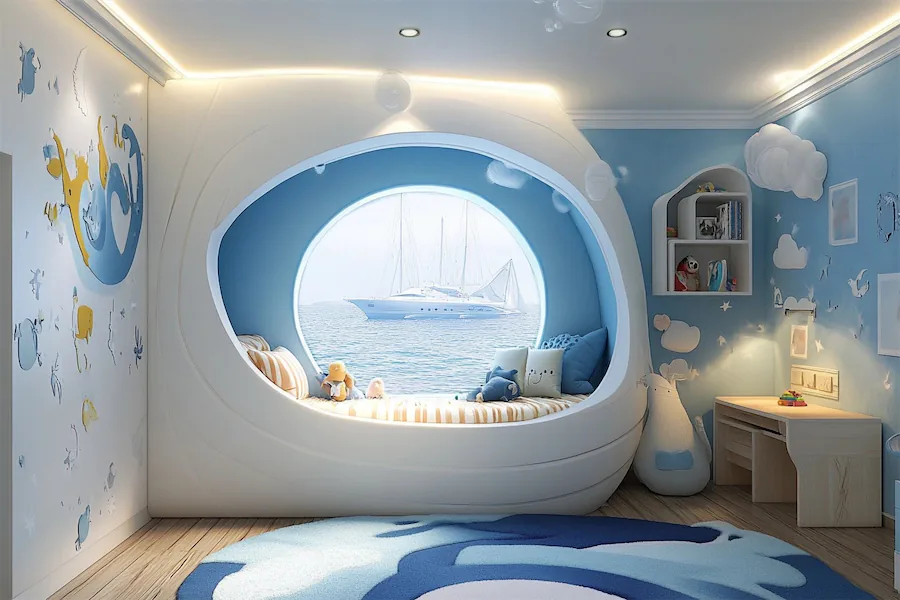Creating a dreamy kid’s room involves blending imagination with comfort, resulting in a space where your child can play, learn, and rest harmoniously. Here’s a comprehensive guide to designing such an environment:
Introduction to Dreamy Kid Rooms
A dreamy kid’s room is a sanctuary that reflects your child’s personality and interests, fostering creativity and a sense of security. By thoughtfully selecting themes, colors, and furnishings, you can craft a space that feels both magical and functional.
Key Features of Dreamy Kid Rooms
- Thematic Decor: Choosing a cohesive theme, such as a fairy tale castle, outer space adventure, or enchanted forest, can unify the room’s design and ignite your child’s imagination.
- Soft Color Palettes: Utilizing gentle, soothing colors like pastels or earthy tones creates a calming atmosphere conducive to relaxation and sleep.
- Textural Elements: Incorporating various textures through plush rugs, velvet cushions, and layered bedding adds depth and coziness to the room.
- Personalized Touches: Adding elements like a mural reflecting your child’s favorite story or hobby can make the space uniquely theirs.
Applications of Dreamy Kid Rooms
- Small Spaces: Even in limited areas, thoughtful design can maximize functionality. Utilizing vertical space with lofted beds or wall-mounted storage can free up floor space for play and movement.
- Shared Bedrooms: For siblings sharing a room, creating defined personal zones with the use of room dividers or color-coded areas can provide a sense of ownership and reduce conflicts.
Considerations When Designing a Dreamy Kid Room
- Safety: Ensure all materials and furniture are child-safe, with no sharp edges, and that paints and finishes are non-toxic.
- Adaptability: Design the room to evolve with your child’s changing interests and developmental stages, incorporating elements that can be easily updated.
- Budget-Friendly Options: Utilize DIY projects or repurpose existing furniture to create a dreamy atmosphere without significant expense.
Conclusion
Designing a dreamy kid’s room is about creating a balance between fantasy and practicality. By focusing on themes that resonate with your child, incorporating soothing colors and textures, and ensuring the space is safe and adaptable, you can craft a room that will be cherished throughout their childhood.
